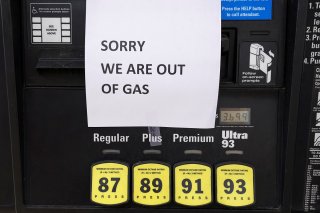Gas at $7 Per Gallon? Price Gouging and Panic Buying Hit Virginia
Experts have cautioned against “panic buying” of gasoline out of fear that supplies will decrease further. They have noted that panic buying often leads to the outcomes that consumers hoped it would prevent – namely, soaring prices and shortages of goods.
The Colonial Pipeline ransomware attack that crippled Colonial Pipeline – an enormous gas pipeline corporation that carries refined gasoline, diesel, and aviation fuel from Texas to New York – has been described as the largest and most serious cyberattack on American infrastructure to date.
Fortunately, the response to the attack has been swift. President Biden declared a state of emergency on May 9th, promising to ensure a steady supply of gasoline to communities impacted by the pipeline shutoff.
However, the sudden collapse in supply has been an incredible boon for gas station operators whose supply was initially unaffected by the pipeline’s sudden closure. While experts have concluded that the pipeline attack should not affect gas prices on a broader scale, rapid price increases have nonetheless occurred in isolated instances. For instance, a local news station in Richmond, Virginia observed that gas prices abruptly increased from $3 per gallon to $7 per gallon on Wednesday at least in one instance at a local gas station.
The pipeline closure has led Governor Ralph Northam to call a state of emergency and has waived some of the normal requirements for transporting fuel. Virginia Attorney General Mark Herring also noted on Twitter that because of the state of emergency, measures designed to combat price gouging were in effect. For this reason, the government has set up a tip line for instances of price gouging and encouraged Virginians to report them.
Experts have cautioned against “panic buying” of gasoline out of fear that supplies will decrease further. They have noted that panic buying often leads to the outcomes that consumers hoped it would prevent – namely, soaring prices and shortages of goods.
In principle, panic buying is analogous to historical “bank runs” – situations in which, out of fear that their banks would become insolvent, large numbers of people attempted to withdraw money at the same time, leading the banks to become insolvent.
While bank runs in the United States were mostly made obsolete after the creation of the FDIC, the same principle applies to other industries. One recent example was the widespread shortage of toilet paper in the early days of the pandemic. While there was never any danger that toilet paper would run out under normal conditions, rumors of shortages led consumers to purchase huge amounts – leading, ironically, to shortages.
It appears that a variation of the same theme is happening in Virginia. Fortunately, the pipeline had also restored some of its functionality by Tuesday afternoon; although its operation has not yet recovered, it seems that enough gasoline will continue to flow to stave off the worst effects of the cyberattack.
Trevor Filseth is a news reporter and writer for the National Interest.

